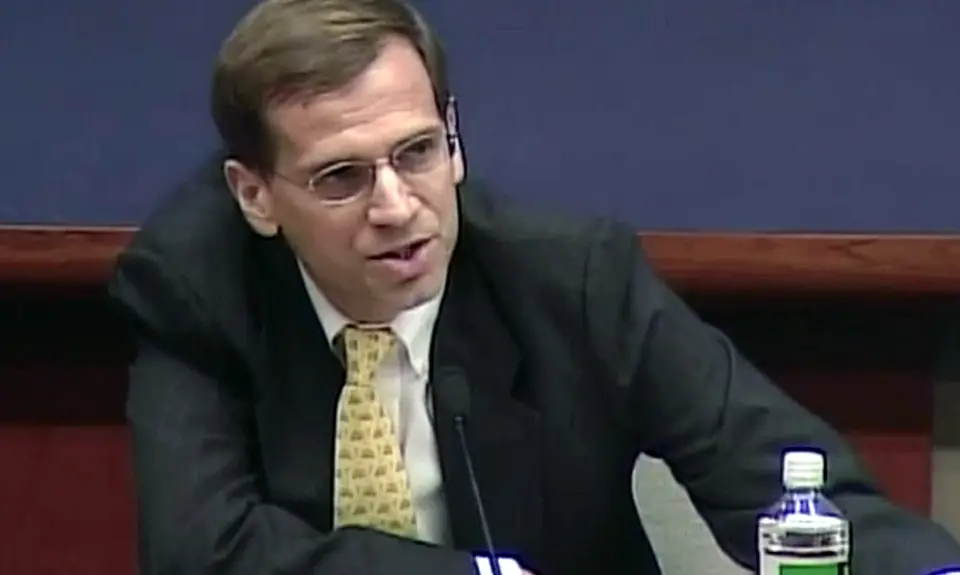“Confirmed Judges, Confirmed Fears” is a blog series documenting the harmful impact of President Trump’s judges on Americans’ rights and liberties. Cases in the series can be found by issue and by judge at this link.
Trump DC Circuit judges Greg Katsas and Justin Walker reversed a preliminary injunction and stay of execution ordered because of problems related to COVID-19 concerning the last two federal prisoners put to death by the Trump Administration. The January 2021 decision was in Roane v Rosen.
Cory Johnson and Dustin Higgs were the 12th and 13th federal prisoners set to be put to death by the Trump Justice Department since DOJ began executions in 2019. While on death row in an Indiana prison, they each contracted COVID-19. Their lawyers quickly sought to delay their executions until they recover because the lung damage caused by the virus would otherwise risk causing them “agonizing pain” in violation of the Eighth Amendment. The Trump DOJ refused, so a district court conducted a thorough two-day evidentiary hearing on the issue. Based on the evidence and the full record, the court found that executing the two men while suffering from COVID-19 would subject them to a significant risk of experiencing “severe pain” in violation of the Eighth Amendment’s ban on cruel and unusual punishment, and ordered that the executions, which were set for mid-January, be delayed until the men recovered from COVID-19. Undoubtedly fearing that the Trump Administration would end before the executions could take place, the Trump DOJ went to the DC Circuit to try to vacate the district court injunction.
In a 2-1 order by Trump judges Katsas and Walker, a DC Circuit panel agreed with the Trump DOJ and vacated the district court’s order, authorizing the executions to proceed immediately. Despite the fact that the district court’s order was based on a careful evaluation of the evidence presented at the hearing, the majority maintained that the record showed only “competing expert testimony” on the severe pain issue, which it claimed was insufficient based on the Supreme Court’s rejection last year of such a claim concerning execution via pentobarbital in the Lee case, thanks to deciding votes by Trump justices. According to the majority, Higgs and Johnson were raising a “near-identical” claim as the one rejected in Lee, and based on its review of the district court decision, they reversed the ruling as an improper “last-minute” attempt to stay an execution.
Judge Patricia Millett strongly dissented. She pointed out that Katsas and Walker were clearly not showing the deference to the district court findings that the Supreme Court has required in death penalty cases, where the Court has explained that reversal should occur only where there is “clear error” by the lower court. Millett explained that the district court had made careful and detailed findings in this case, including that the argument for a stay was “factually and legally distinct” from the contentions in Lee, where there was no evidentiary hearing. The issue here was the effect of use of pentobarbital in light of the debilitating consequences of the COVID-19 infection. On that issue, Millett continued, the district court specifically found that the plaintiffs’ evidence was “more persuasive and credible”, including the determination that one of the government’s two experts “demonstrated basic misunderstanding” of the medical records concerning the effects of COVID-19 on the plaintiffs. The government offered “no basis,” Millett wrote, for “disturbing the district court’s carefully considered evidentiary and credibility factual findings.”
Judge Millett specifically rejected the majority’s argument that this was an improper “last-minute” claim, noting that the prisoners could not have raised it “before their diagnoses” of COVID-19. It was that new ailment, Millett emphasized, that led to the finding that the two men would suffer an “elevated, substantial, and unnecessary risk of severe pain,” as well as causing “serious health risks” to “ the prison officials responsible for administering the death penalty” and those “charged with witnessing it.”
Only days later, as a result of the deciding votes of the Trump justices, the Supreme Court authorized the immediate executions of Johnson and Higgs, without even considering the concerns about executing them while they suffered from COVID-19. Justice Sonia Sotomayor specifically criticized the order by Katsas and Walker as well as the Court majority’s failure to consider it, noting the district court’s “careful fact-finding” and the concern about “needless and significant pain.” Although the federal death penalty will stop under the Biden Administration, this case shows that Trump appellate court judges like Katsas and Walker, just like Trump’s Supreme Court justices, have been all too willing to bend or ignore precedent and deference to district court findings in order to carry out Trump’s policy of executing as many people as possible.
